Awesome isn't usually Cheap. And Why Should it Be?
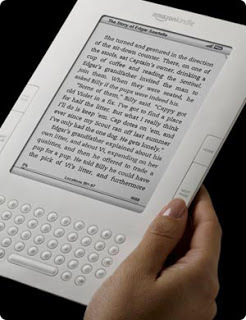 With all this talk floating around lately about the "Kindle Millionaires" and the coming exodus of writers leaving the traditional publishing world for the supposedly greener pastures of self-publication through Amazon, Barnes & Noble, Smashwords, etc, I've been having a bit of an existential crisis as a writer. What does this mean for me? Should I self-publish too? Granted, I have a few titles for download on Smashwords, but mostly I've been using it as a place to put my reprints. And I've sold a decent number of copies so far, considering I haven't done much by way of marketing.
With all this talk floating around lately about the "Kindle Millionaires" and the coming exodus of writers leaving the traditional publishing world for the supposedly greener pastures of self-publication through Amazon, Barnes & Noble, Smashwords, etc, I've been having a bit of an existential crisis as a writer. What does this mean for me? Should I self-publish too? Granted, I have a few titles for download on Smashwords, but mostly I've been using it as a place to put my reprints. And I've sold a decent number of copies so far, considering I haven't done much by way of marketing.But for all the romantic platitudes about forging one's own destiny, or whatever Fleetwood Mac sang about going your own way, there exists one kernel of truth behind the success of these (select few) authors. Consumers are flocking toward cheap, impulsive buys. There is very little a buyer needs to risk with a $1-$3 download. If they like it, it was a very huge payoff, and if the author has other books to choose from, they can own that person's entire catalog for the price of one hardcover. Or less. If they didn't like the book, they're only out a couple bucks and no one feels particularly violated.
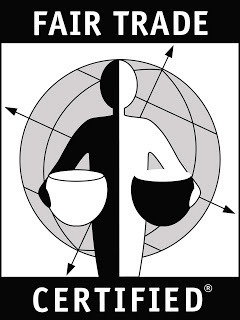 Cheap price points appeal to people in all matters. Hell, one could argue that the human pursuit of cheap, and the ever-waning perception of value in this country is perhaps at the root of our economic woes. And it continues to get worse every year. When we pay for anything these days, we're no longer thinking about the stores it keeps open or the people our money helps to keep employed. We could give a shit less about the salaries of editors--or really even the writers--artists, marketers, lawyers, etc that buying a traditionally published book pays for. We'd rather buy cheap coffee beans from exploited African farmers than pay a little more for Fair Trade beans. We'd rather buy a cheap bookshelf from Ikea that will probably fall apart within a few years than a piece of furniture from an actual local craftsman that could last a lifetime. Of course, the latter piece of furniture would probably cost three times as much and that furniture maker would probably be able to feed his family nicely with the proceeds from his furniture-making sales, but we don't think about that. We think about what it will cost us right now. How much is it going to put US out, even if in four or five years we're out buying another cheap bookshelf?
Cheap price points appeal to people in all matters. Hell, one could argue that the human pursuit of cheap, and the ever-waning perception of value in this country is perhaps at the root of our economic woes. And it continues to get worse every year. When we pay for anything these days, we're no longer thinking about the stores it keeps open or the people our money helps to keep employed. We could give a shit less about the salaries of editors--or really even the writers--artists, marketers, lawyers, etc that buying a traditionally published book pays for. We'd rather buy cheap coffee beans from exploited African farmers than pay a little more for Fair Trade beans. We'd rather buy a cheap bookshelf from Ikea that will probably fall apart within a few years than a piece of furniture from an actual local craftsman that could last a lifetime. Of course, the latter piece of furniture would probably cost three times as much and that furniture maker would probably be able to feed his family nicely with the proceeds from his furniture-making sales, but we don't think about that. We think about what it will cost us right now. How much is it going to put US out, even if in four or five years we're out buying another cheap bookshelf?Borders is closing nearly half their stores right now, and we rush out to rip books from shelves that only have a 20% markdown. That amounts, roughly, to about three bucks on a trade paperback. Three freaking dollars. A multi-billion dollar company is going bankrupt and sending hundreds of unemployed people onto the streets because, theoretically, they couldn't coax you into their stores unless they gave you a discount that amounts to the price of a Starbucks latte that most people happily pay for (sometimes multiple times a day) without even thinking?
What the hell is wrong with people? Why are we so obsessed with getting more for less? Isn't a book that has been labored over for months in terms of content, marketing, etc worth the money in terms of the pleasure it gives us? In my lifetime, I've spent thousands (probably tens of thousands) of dollars on brand new and used books, and so far I've spent a couple hundred on downloads. And I've always felt happy about it. Like I was doing something good for myself. I've always seen buying books as something like spa treatments for the mind. You could argue that publishers are buying and releasing crap, but not every book a publisher releases is going to be great or written for me.
The world doesn't revolve around me.
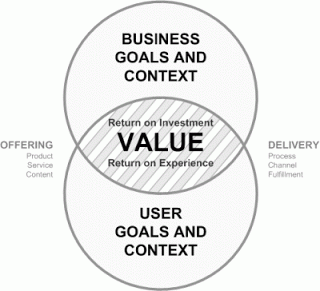 And that is perhaps the most salient point. It isn't all about me. Therefore, when I pay for something, I expect there to be a lot associated with that price apart from what it brings ME. I don't mind keeping editors and copy editors and marketers and agents and illustrators employed. Because I've already lived too long in a country where millions of people are without a job, and it sucks. I will pay $9.99 for an ebook if I believe that book is going to be a superior read from a decent author, and I will often pay that $9.99 before I'll pay $2.99 for a self-published book sight unseen. Because editing means something to me, and I can tell you right now that even a book edited by a lone freelance editor (like me) is STILL not going to be as good as that same book edited by a team of people at even a tiny publishing house.
And that is perhaps the most salient point. It isn't all about me. Therefore, when I pay for something, I expect there to be a lot associated with that price apart from what it brings ME. I don't mind keeping editors and copy editors and marketers and agents and illustrators employed. Because I've already lived too long in a country where millions of people are without a job, and it sucks. I will pay $9.99 for an ebook if I believe that book is going to be a superior read from a decent author, and I will often pay that $9.99 before I'll pay $2.99 for a self-published book sight unseen. Because editing means something to me, and I can tell you right now that even a book edited by a lone freelance editor (like me) is STILL not going to be as good as that same book edited by a team of people at even a tiny publishing house.And I can tell you right now that each and every book on my Favorite Books of All Time list came from a traditional publisher. We might as well stop lying to ourselves if we think for a minute that the best self-published book is going to be of the same quality as a book that comes from a traditional publisher. Even Amanda Hocking admits she could use a better editor, and most self-publishers are trying to be their own editors, which spells disaster for even the most prodigious raw talent. I would be VERY remiss to put out a novel of my own that hasn't had a professional edit of some sort, and I bet you most of the NYT Bestsellers would say the same thing.
That being said, I want all people to prosper. I'm glad J.A. Konrath and Amanda Hocking have found a way to make the e-publishing thing work for them, and I'm behind anybody who wants to try it. I would be lying if I said I wasn't just a tad bit jealous of the rare success stories. After all, they're making their own way. And there is a very big allure for me to try it for myself and see how I do.
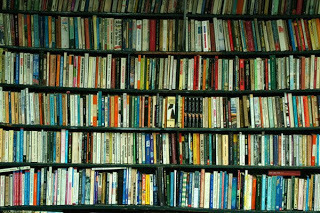 But I think it's wrong to do it under the precept that traditionally published books aren't an excellent value and that those who work in publishing don't deserve a paycheck and are simply exploiting artists for profit. Oh sure, there is some fat that can undoubtedly be cut from the system, but that's the case with everything. And it's certainly not the same as looking the other way while an entire industry burns, particularly because its gatekeepers wouldn't let you in. I don't know about you, but I'd rather not continue to wax cynical about the industry that brought me 1984 and The Stand and The Road and Little Women and The Moon is a Harsh Mistress and so forth, because I'd love more than anything for one of my books to be mentioned in the same breath as those. And I know how they got there and how most writers today will continue to get there, even with the advent of e-publishing.
But I think it's wrong to do it under the precept that traditionally published books aren't an excellent value and that those who work in publishing don't deserve a paycheck and are simply exploiting artists for profit. Oh sure, there is some fat that can undoubtedly be cut from the system, but that's the case with everything. And it's certainly not the same as looking the other way while an entire industry burns, particularly because its gatekeepers wouldn't let you in. I don't know about you, but I'd rather not continue to wax cynical about the industry that brought me 1984 and The Stand and The Road and Little Women and The Moon is a Harsh Mistress and so forth, because I'd love more than anything for one of my books to be mentioned in the same breath as those. And I know how they got there and how most writers today will continue to get there, even with the advent of e-publishing.I will continue to hope every day for the survival of the publishing industry and its gatekeepers and editors and proofreaders and illustrators and printers and distributors, even as I cheer for the success of the indies. As a writer, I understand the need to write and for people to read what we write, and e-publishing is a wonderful outlet for that. Because not every writer is going to make it through the gatekeeper system. Hell, probably not even me. The odds are never in an individual's favor, which makes success in this business a huge triumph.
But make no mistake: excellent products and services do and SHOULD come at a premium. Because we're all in this together, doing what we love, and if we can live off the proceeds of doing what we love, then we're all the richer for it. Not just with books, but with everything.
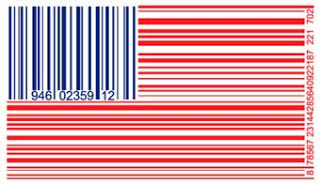
Published on March 08, 2011 07:51
No comments have been added yet.



